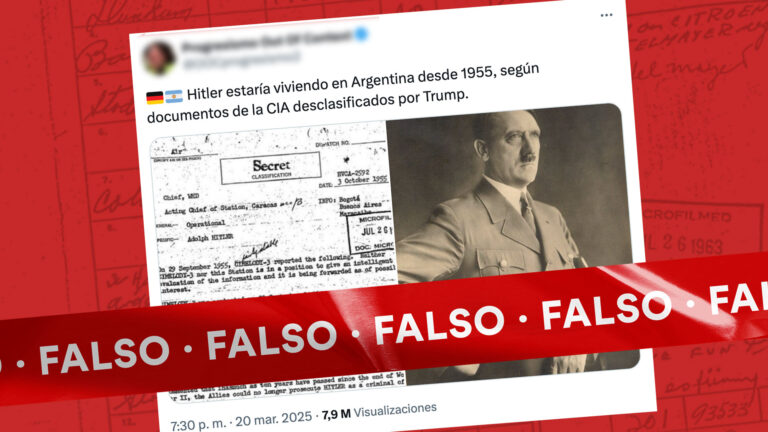The fake accounts that intoxicated the online conversation on issues of national interest in Venezuela were part of a network that also operated in Bolivia, Panama and the Dominican Republic
At least 352 Twitter accounts that were part of a troll farm spreading propaganda and disinformation in several Latin American countries were deleted by Twitter during April 2022.
The trolls were part of a network of 357 accounts identified by Cazadores de Fake News as the «#TrollsVQ» network, according to a report published on April 3.
181 accounts of the same network had been identified in a previous report, having generated covert propaganda in favor of several candidates of the United Socialist Party of Venezuela (PSUV, ruling party in Venezuela), and polarizing and defamatory content against some candidates of the Unitary Platform of the Venezuelan opposition, in November and December 2021.

The accounts covertly promoted narratives favorable to the Venezuelan government, sometimes posing as opposition users to sow discord, polarize conversations, stimulate distrust of Venezuelan opposition candidates, or promote narratives convenient to the Venezuelan regime.
Among other topics, they participated in astroturfing campaigns promoting the Venezuelan app VenApp, expressing approval and confidence in the National Electoral Council (Consejo Nacional Electoral, CNE), stimulating distrust in the credibility of Karim Khan, Chief Prosecutor of the International Criminal Court (ICC) and showing frustration and indignation with the process carried out by the ICC:

An international network of propaganda and political disinformation
In the report «TrollsVQ: Astroturfing Panamericano» (in spanish), published on April 3, 2022, details of the network identified in December were elaborated on and it was concluded that the set of troll accounts whose operation in Venezuela was detected was part of a much larger network.
The great similarities in the characteristics of the accounts (including the style of their avatars, the use of photos stolen from real people’s Instagram accounts, the use of replies to generate content, the repetition of unrelated topics to simulate organicity) and the following relationships between them, allowed to establish connections and determine that the network was made up of at least 357 similar troll accounts, operating in Venezuela and at least three other Latin American countries Bolivia, Panama and Dominican Republic.

The accounts promoted specific issues in each of the countries, in any case related to national or regional governments or strategic state-owned companies.
In Bolivia, some of the troll accounts generated covert propagandistic content extolling Luis Arce, the current president of Bolivia, responding to content related to the state-owned company Yacimientos Petrolíferos Fiscales Bolivianos (YPFB).
The troll accounts published responses to Bolivian congressmen and media that referred to the investigation opened against the Panamanian company Venqis for alleged favoritism in the awarding of contracts by YPFB, disdaining the investigation initiated at the beginning of this year and deploring the work of the Bolivian media in reporting on the case.

In Panama, some of the troll accounts published propagandistic content mainly in favor of the Democratic Revolutionary Party (Partido Revolucionario Democrático, PRD), Vice President José Gabriel Carrizo and, to a lesser extent, President Laurentino Cortizo:

In the Dominican Republic, some of the troll accounts generated covert propaganda by responding to tweets by President Luis Abinader and by officials such as David Collado (former mayor of the National District and current Minister of Tourism of the Dominican Republic), José Paliza, Homero Figueroa, Igor Rodríguez Durán, Gloria Reyes and Lisandro Mararrulla.
The trolls also responded to tweets from institutional accounts such as those of the Vice-Presidency of the Dominican Republic, the Directorate of Strategy and Government Communication, the Attorney General’s Office and the National Police of the Dominican Republic.

In the report «TrollsVQ: Pan-American Astroturfing«, connections were established between the countries in which the #TrollsVQ network was activated, the narratives present in the astroturfing campaigns they promoted, the creation of digital government applications and complaints about platform manipulation operations deployed in those countries, carried out by Twitter users and local politicians.
It could be determined that the company Venqis S. A. (a Panamanian political strategy consulting firm) or some of its members, obtained contracts or participated voluntarily in the promotion of electoral campaigns or public image for political actors, state companies in Venezuela, Bolivia, Panama and the Dominican Republic, or in the development of digital government applications, which, like VenApp in Venezuela, were also developed in Panama and the Dominican Republic.
The #TrollsVQ network also promoted covert propaganda and disinformation about the same clients in the same countries and, in the case of Venezuela, also promoted the digital government app VenApp, a new «social network» with similar characteristics to other applications that Venqis (or companies related to its members) had developed for its clients in Panama and the Dominican Republic.

The final list of the 357 #TrollsVQ network accounts (352 of them suspended), can be consulted here. Archived screenshots of some of the suspended accounts are included (see last column).




